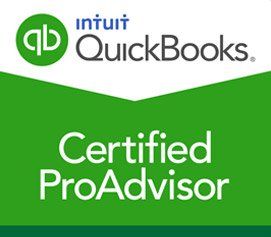What Happens When You File a Late Tax Return?
There are three consequences to failing to file your tax return on time, but let’s get something straight: It is not considered late filing if you file your tax return during the extension period. To learn more about that, set up a free one hour consultation with a Yoke Tax professional.
Returns filed late carry a one-year extension after they are filed. As a consequence, three results may occur.

Result 1
The IRS will notify you if you fail to file or file late. Individuals who have not filed their taxes also receive letters from the IRS encouraging them to do so. It is generally not recommended to discuss unfiled tax returns with the IRS in meetings.
Those who file late face IRS audits as a serious problem. In the 3 percent of cases when the IRS audits your tax return, you are late in filing your return. IRS audits have a much higher probability, perhaps up to 50 percent.
Filing late has one downside: you're more likely to meet an IRS examiner.
Result 2
Late filing will result in a penalty of five percent of the amount of the tax due each month, up to a maximum of 25 percent of your tax.
Unfortunately, there will be a 5 percent increase every month. A maximum of 25 percent of the penalty can be avoided if you pay the maximum amount.
Result 3
You may also be liable for a penalty for failure to pay if you owe the failure to file penalty. The penalty for failing to pay is 0.5 percent monthly, up to 25 percent of the tax owed.
For the first five months, the penalty for refusing to pay offsets the failure to file penalty, so that, in total, the penalty for failure to pay is 5 percent.
Failure to pay after five months continues to incur a penalty. The maximum penalty for failing to pay is 25 percent, plus 0.5 percent for each subsequent 45 months until you reach the 25 percent maximum.
Avoid these three consequences. Please feel free to discuss any of them in a free consultation with YokeTax.
What Should I Know?
You may need to amend your tax return if you, for example, need to change your filing status, your income, your deductions, your credits, or the amount of tax due in your return. Or, you may have received a notice from the IRS disputing your claim, informing you that they have adjusted your return. It would be necessary to amend your return if this is the case so that the adjusted amounts are changed by the IRS.
The return may also be amended by claiming a carryback if a loss has occurred or if a credit has been unused. An alternative to Form 1040-X is Form 1045, Request for Tentative Refund, which can provide you with a faster refund.
In general, you need to amend your original tax return three years after filing, including extensions of the date of filing or two years after the date of paying tax, whichever comes later, following the date on which the original tax return was filed. Justifications for late returns might include:
- Disability due to financial hardship
- Disasters declared by the federal government
- Zones of combat
- Debts that are bad
- Securities of no value
- Deduction or credit for foreign taxes
- Carryback of losses or credits
- Grants for disaster relief
If an amended return is filed within these time limits, the deadline is automatically extended.
The current tax years’ Form 1040-X is filed along with the previous years’ Form 1040-X. Your original return has been updated with new information
The IRS must be notified of tax returns that contain mistakes. In order to correct an error, you must file a corrected return with the IRS. If you do not correct the mistake, you may be subject to penalties and interest. Yourself or a professional can prepare your amended return.
To learn more about this or to speak with a professional, get a consultation with YokeTax.
Can I Refile If I Need to Edit My Taxes?
If you forgot to add something or change something, you can refile your taxes. The IRS website or a local IRS office has Form 1040-X which you can use to make changes to your return. The amended return can also be prepared by a professional.
Will the IRS Catch My Mistake?
The IRS will most likely catch a mistake on a tax return. Additional information, such as that provided by employers, is cross-referenced by the IRS using substantial computer technology. By cross-referencing your tax return with other information, the IRS is almost certain to find any errors you have made.
What is the IRS's Double-Checking Policy?
Tax returns are continuously checked by IRS computer programs. Everything is automated. The computer flags a return when data on the return differs from what the computer has on file.
What to do If You Forgot To File Your Taxes?
When you forget to include a W-2 with your taxes, you should file an amended return immediately. The process involves a few simple steps. It can be filed yourself or by a professional. Just set up a free one hour consultation with a Yoke Tax professional to get started.
Can Incorrect Tax Filing Lead to Jail Time?
A mistake on a tax return or filing an incorrect return cannot result in jail time. You may be held responsible for fraud if you intentionally leave out items from your tax filing. Intent determines whether an action is criminal. It is not illegal to make a mistake and correct it.
Tax Crimes: Can Ignorance or Mistake Be a Defense?
It is not a valid defense to any tax crime to claim you made a mistake or didn't know the law. Appeals based on ignorance will not help you avoid penalties if the IRS believes that you intended to violate the law. There is a presumption that everyone knows the law.
What Should I Do If I Receive a CP-2000 Notice From The IRS After Filing My Taxes?
If you receive a notice of CP-2000 from the IRS, you should not file a form of amended return. If you receive a CP-2000 notice, the IRS should contact you first. If you have under-reported your income, your tax return must be recalculated based on the information they have provided you with. As you begin to complete your calculations, you may notice some forms of income that haven't been taken into account in your calculations, and if that is the case, you will want to contact the IRS and notify them that you agree with their findings. It is therefore not necessary to amend your tax return to be able to make a payment for your tax liabilities.
What Should I Do if the IRS Rejects my Electronic Tax Return?
The IRS may reject your initial e-filing for various reasons. It is possible to correct a technical error and resend. You should consult a professional if the IRS rejects your application.
How Should I Respond to an IRS Audit Notice?
If you receive an audit notice from the IRS, they will explain the reasons for auditing your return. Documentation supporting your position should be gathered immediately if you believe the IRS is wrong. The next step is to identify the error and contact the IRS.
As always, a
free one hour consultation with a Yoke Tax professional should be a top priority. Every Yoke Tax employee has 20 years of experience in the field, and is ready to help.



